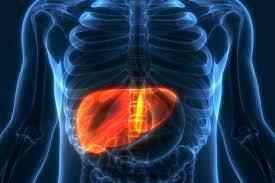In a world where health concerns often dominate our thoughts, liver cancer remains a silent and elusive threat. The deadly disease is notoriously challenging to detect in its early stages, which makes it imperative for us to be aware of the subtle warning signs that our bodies might be sending. In this article, we’ll delve into the topic of liver cancer, exploring the early indicators that are often hard to spot. By the end, you’ll have a clearer understanding of what to look for and how to take action if you suspect something might be amiss.
Understanding Liver Cancer
What is Liver Cancer?
Before we dive into the signs, let’s grasp the basics. Liver cancer, medically known as hepatocellular carcinoma, is a malignancy that originates in the liver. It is a global health concern and ranks among the leading causes of cancer-related deaths worldwide.
Causes and Risk Factors
Several factors can increase the risk of developing liver cancer:
Chronic Hepatitis Infections
Chronic infections with hepatitis B or C viruses significantly elevate the risk.
Cirrhosis
Liver cirrhosis, often caused by excessive alcohol consumption or other liver diseases, can pave the way for cancer.
Non-Alcoholic Fatty Liver Disease (NAFLD)
NAFLD, a condition associated with obesity and metabolic syndrome, can progress to liver cancer.
The Elusive Early Signs
Unexplained Weight Loss
Sudden and unexplained weight loss is often a red flag for various health issues, including liver cancer. If you find yourself shedding pounds without any lifestyle changes, it’s time to consult a healthcare professional.
Abdominal Pain
Persistent pain or discomfort in the upper abdomen, particularly around the liver area, should not be ignored. It can be indicative of liver issues.
Jaundice
Yellowing of the skin and eyes, known as jaundice, occurs when the liver isn’t functioning correctly. While it can have various causes, it’s essential to rule out liver cancer.
Fatigue
Feeling excessively tired despite getting enough rest could be a sign that your liver is struggling.
Appetite Changes
A sudden loss of appetite or feeling full even after consuming small amounts of food can be an early warning sign.
Seeking Medical Help
If you experience any of these symptoms persistently, it’s crucial to consult a healthcare professional promptly. Early detection is key to successful treatment.
Conclusion
Liver cancer is a formidable adversary, but being vigilant about the early signs can make all the difference. By paying attention to your body and seeking medical advice when needed, you can increase your chances of early detection and successful treatment.
FAQs
Q. Can liver cancer be prevented?
A. While not all cases can be prevented, lifestyle choices such as reducing alcohol consumption, maintaining a healthy weight, and getting vaccinated for hepatitis can lower your risk.
Q. Are there any screening tests for liver cancer?
A. Yes, for individuals at higher risk, regular screenings like ultrasound and blood tests are available to detect liver cancer in its early stages.
Q. What are the treatment options for liver cancer?
A. Treatment options include surgery, chemotherapy, radiation therapy, and targeted drug therapy. The choice depends on the stage and extent of the cancer.
Q. How common is liver cancer?
A. Liver cancer is relatively rare but can be more common in regions with a high prevalence of hepatitis B or C.
Q. Is liver cancer curable?
A. The prognosis depends on the stage at which it’s detected. Early-stage liver cancer is often curable, while advanced stages may be more challenging to treat. Early detection is crucial for better outcomes.
